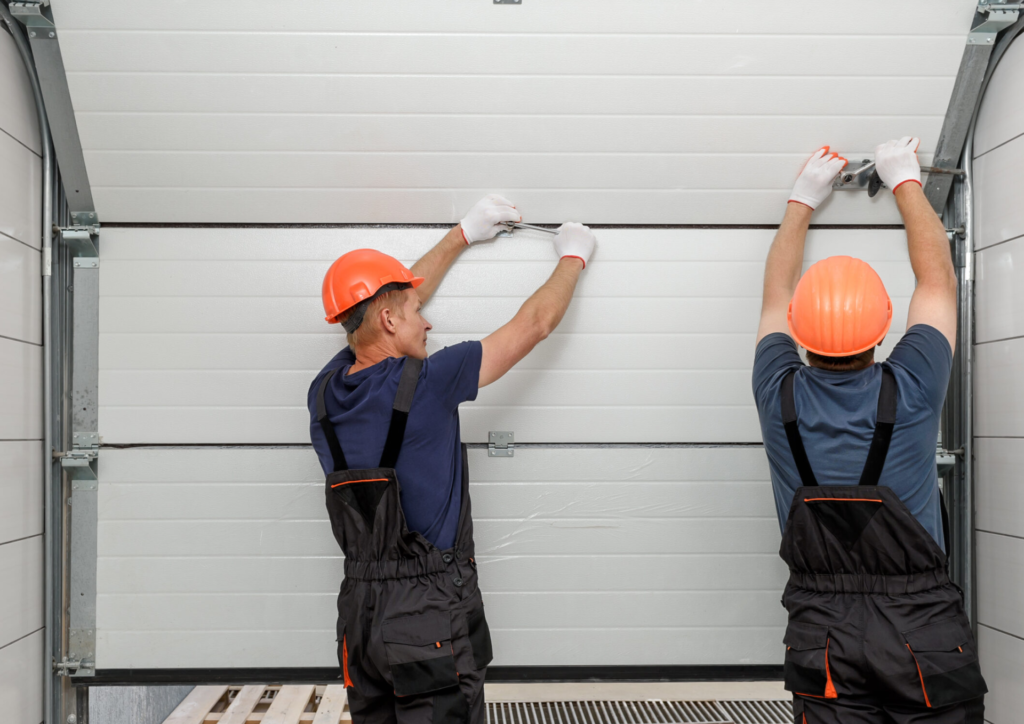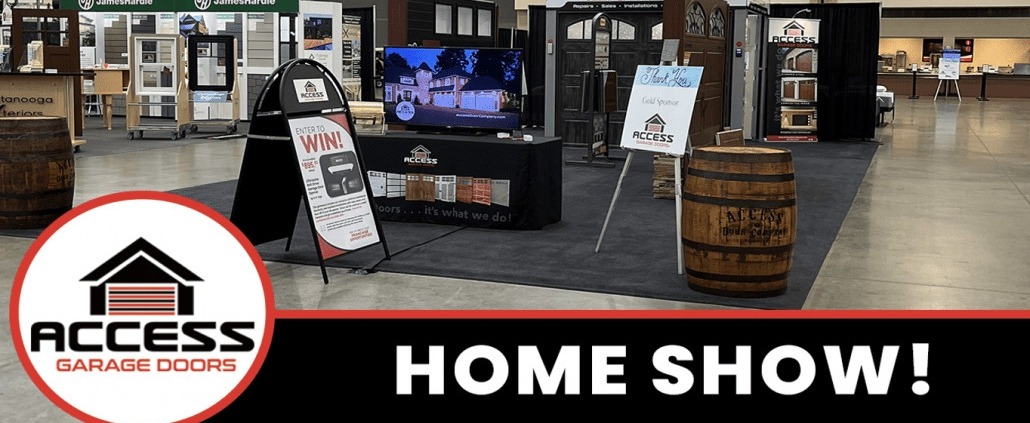Superior Customer Care and Top Quality Job from Phoenix Garage Door Specialists
Superior Customer Care and Top Quality Job from Phoenix Garage Door Specialists
Blog Article
Comprehending the Typical Issues That Can Influence Your Garage Door Performance
Understanding the typical problems that can influence your garage door efficiency is critical for maintaining both security and functional efficiency. Factors such as misaligned tracks, defective sensors, and springtime breakdowns can cause a series of problems, from unforeseen reversals to significant security risks. Noisy procedure might suggest underlying mechanical issues, while remote control failings can hamper access. Identifying these issues early is important, yet many homeowners continue to be uninformed of the signs. What preventative actions can be required to ensure your garage door continues to be in optimum problem?
Misaligned Tracks
Misaligned tracks can considerably hinder the efficiency of a garage door, causing operational ineffectiveness and potential security risks. When the tracks that assist the door are misaligned, the door might become difficult to open up or shut, causing unnecessary pressure on the door's components and potentially causing premature wear or failing.
Numerous elements can add to track imbalance, including physical obstructions, deterioration over time, or incorrect installment. 24/7 Garage Repair in Sun City West. Also minor variances can affect the door's operation, causing uneven activity or jamming. In some instances, a misaligned track can cause the door to disengage from its rollers, posturing a serious safety and security threat to individuals and spectators
Routine upkeep is important to avoid misalignment. House owners need to routinely examine the tracks for debris and guarantee that installing equipment is safe and secure. If misalignment is spotted, prompt rehabilitative measures ought to be taken, which might entail readjusting the brackets or seeking expert support. Attending to misaligned tracks not only improves the performance of the garage door but also prolongs its lifespan, ensuring a trustworthy and risk-free operation for years ahead.
Faulty Sensing Units
When garage door sensing units malfunction, they can disrupt the whole procedure of the door, bring about safety and security issues and comfort problems. These sensors are created to discover barriers in the door's course, guaranteeing that the door reverses if something is in the means. A faulty sensor might not respond appropriately, causing the door shutting all of a sudden or failing to shut entirely.
Typical reasons for sensor breakdown include dust or particles blocking the sensing unit's lens, misalignment of the sensing units, or damage to the electrical wiring. Routine upkeep, such as cleaning the sensor lenses and examining their positioning, can aid alleviate these issues. It may be necessary to replace them. if the sensors are persistently malfunctioning regardless of maintenance.
To identify sensing unit problems, observe the door's behavior during operation. The sensing units may be at mistake if the door turns around without obstruction or fails to close or open up. It is critical to resolve these concerns quickly, as malfunctioning sensing units position a threat of injury or home damage. Consulting an expert service technician for a detailed maintenance can ensure the efficient and secure operation of your garage door.
Springtime Issues
Garage door efficiency can also be jeopardized by issues with the springtimes, which are crucial parts in charge of counteracting the weight of the door. These springs birth the problem of the door's weight, facilitating smooth opening and closing. With time, springs can experience deterioration, resulting in different issues such as reduced stress or total failing.
One typical concern is the stretching or weakening of torsion springtimes, which might cause the garage door ending up being unbalanced. This can cause the door to relocate unevenly or fall short to open completely. Expansion springs, on the various other hand, might break or become detached, presenting safety and security dangers as click to read they can break back with substantial force.

Loud Procedure
Loud procedure of a garage door can be a discouraging experience for homeowners, often indicating underlying mechanical concerns. Common sources of noise include damaged rollers, loose equipment, or not enough lubrication. Gradually, the steel components of the door system can weaken, bring about boosted rubbing and sound throughout operation.
One regular perpetrator is the rollers. If they are worn or damaged, they can produce a grinding or squealing audio as the door moves along the track. Furthermore, loose bolts or screws can create rattling sounds, which might disrupt the smooth procedure of the door. Guaranteeing that all elements are tightened and safe and secure is essential for maintaining a quiet system.
Not enough lubrication on the relocating parts can aggravate sound problems. On a regular basis applying a silicone-based lubricant to more tips here rollers, tracks, and hinges can dramatically minimize rubbing and sound, boosting overall efficiency.
In some situations, the garage door opener itself might be the source of the noise, often due to imbalance or mechanical wear. Resolving these elements without delay can cause a quieter and extra effective garage door procedure, enhancing both ease and the life expectancy of the system.

Remote Control Problems
A common issue that lots of property owners encounter is the malfunctioning of garage door remotes. This issue can materialize in various methods, including unresponsiveness or periodic feature. Typically, the very first step in troubleshooting is to check the batteries in the remote. Weak or depleted batteries can substantially lower the remote's range and performance.
One more potential root cause of push-button control concerns is interference from various other electronic tools. Typical household things such as cordless phones, Wi-Fi routers, and also surrounding garage doors can disrupt the signal in between the remote and the opener. If interference is presumed, altering the remote's frequency or transferring the opener might be needed.
In many cases, the issue might lie within the remote itself. Physical damages, such as cracks or water exposure, can make the remote defective. A substitute might be necessitated. if damages is believed.
Lastly, ensure that the garage door opener is functioning properly. If the opener is malfunctioning, it might not react to remote signals no matter the remote's condition. Routine maintenance and regular checks can aid protect against these concerns and guarantee smooth procedure.
Conclusion
In conclusion, the performance of garage doors is affected by different usual concerns, consisting of misaligned tracks, defective sensing units, springtime problems, loud procedures, and click here for info push-button control malfunctions. Attending to these worries via routine maintenance and timely fixings is essential for ensuring ideal performance and safety. By recognizing these prospective concerns, home owners can take aggressive actions to enhance the integrity of their garage doors and protect against more substantial difficulties in the future.
When garage door sensing units malfunction, they can interrupt the whole procedure of the door, leading to security problems and benefit problems. These sensors are developed to discover challenges in the door's path, guaranteeing that the door reverses if something is in the method.Garage door efficiency can also be compromised by problems with the springtimes, which are essential parts responsible for counterbalancing the weight of the door.A common problem that several home owners encounter is the malfunctioning of garage door remote controls.In conclusion, the efficiency of garage doors is influenced by numerous common problems, including misaligned tracks, damaged sensing units, springtime troubles, noisy procedures, and remote control breakdowns.
Report this page